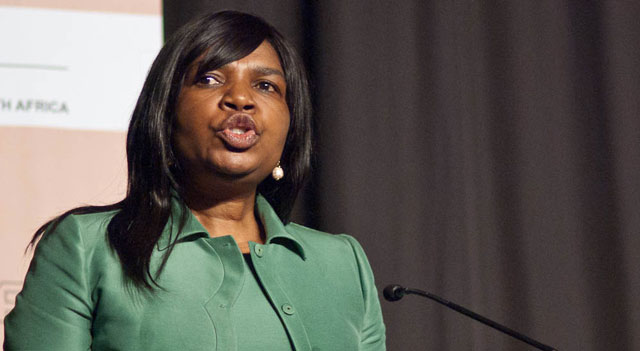
Communications minister Dina Pule hopes government will have a draft policy direction on spectrum ready sometime next month.
She says her department has not rushed the process because “whatever process we undertake must benefit all South Africans”.
“We don’t want to rush things.”
Telecommunications operators are desperate for access to the 2,6GHz band and frequencies below 850MHz so they can begin building next-generation mobile broadband networks. MTN, in particular, has expressed frustration at the time it is taking to award new spectrum licences.
Pule says there is “impatience” for the allocation of spectrum in “digital dividend” band around 800MHz that will become available when the move from analogue to digital broadcasting is complete.
But, she says: “The industry must be patient with us. We must satisfy everybody.”
She says the department of communications could perhaps have finalised its stance on spectrum allocation sooner than May, but it has been kept busy with the migration to digital broadcasting and this week’s policy colloquium, among other things.
Pule says there is no doubt that aspects of government policy need an overhaul, particularly when it comes to broadcasting and broadband, where she says policies are outdated and ill-equipped to deal with contemporary SA’s needs.
“We have to go back and review some of these policies and see if they’re still relevant and can take us to 2020 or 2030,” she says. “We have to look at whether these policies are actually empowering us as government to take these policies to rural areas.”
Pule says legislation is “very flimsy in some areas”.
“It’s important for us to help [the Independent Communication Authority of SA] regulate in a manner that will help us going forward … by bringing the cost to communicate down. To deal with this, we really have to overhaul the legislation.”
However, Pule says existing policies may have some valuable aspects that shouldn’t be disregarded. “We are not reinventing the wheel. We will keep those policies that are helpful.”
On the topic of local-loop unbundling, where operators and Internet service providers could eventually gain direct access to Telkom’s “last-mile” copper-cable network into homes and businesses, Pule says “the directive [to conduct the process] was given a long time ago. However, because of the load of work we have had to do we have not been able to go back and address the issues of [unbundling].”
She says that once this week’s colloquium, a forthcoming ICT indaba, and the start of the dual-illumination process — where digital broadcasting will begin and operate side-by-side with analogue technology – have been concluded, the department will “have a chance to come back” to local-loop unbundling.
Regarding government’s objective of providing 100% broadband coverage by 2020, Pule concedes this is a huge project and that it is not a goal government can achieve alone.
“To roll out 100% is not going to work if it’s only government forking out money. It has to be a partnership with the private sector. We don’t have enough money as government to roll out broadband alone.”
Pule says government is trying to create concrete guidelines to drive connectivity. “We have begun the process of drafting our own strategy for a broadband plan. We hope to have a first draft soon. Before the end of the year, we hope to have a national plan for government and industry.”
She says the department of communications has appointed “transactional advisors” to assist it with analysing the broadband situation in SA. “Once they can advise me, we can advise government,” says Pule. — (c) 2012 NewsCentral Media




